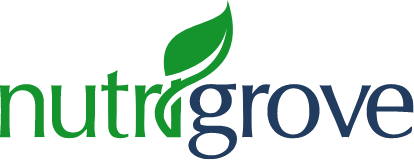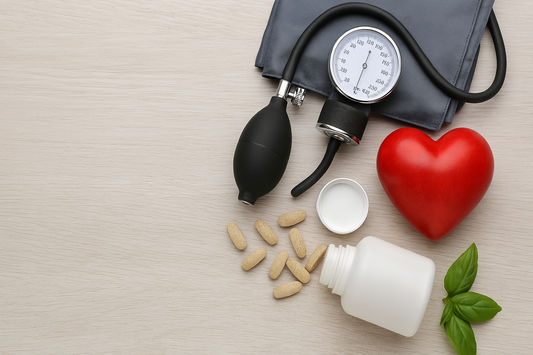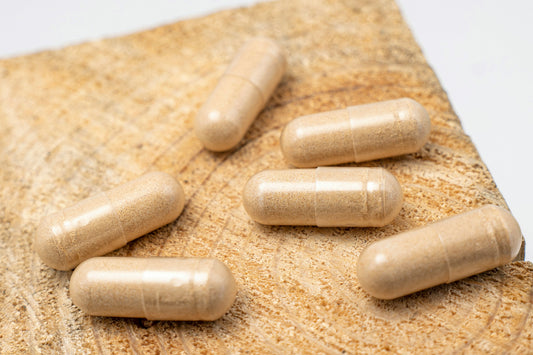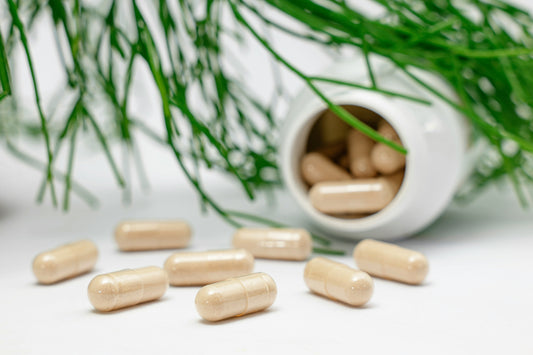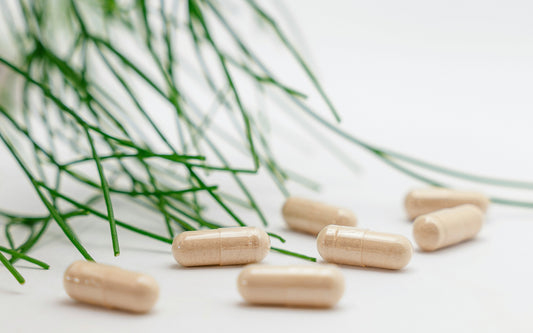Can You Reverse High Blood Pressure?
High blood pressure, also known as hypertension, is a common condition that affects many people worldwide. It is often referred to as the "silent killer" because it typically has no symptoms, but can lead to serious health complications if left unmanaged. The good news is that lifestyle changes can play a vital role in treating high blood pressure and even reversing it. By making simple adjustments to your daily routine, such as improving your diet and increasing physical activity, you may be able to lower your blood pressure naturally.
Key Takeaways:
- Lifestyle changes can help lower and even reverse high blood pressure.
- Recommended changes include maintaining a healthy weight, engaging in regular physical activity, and following a nutritious diet.
- Reducing sodium intake, limiting alcohol consumption, and quitting smoking are also important steps.
- Managing stress, getting enough quality sleep, and monitoring blood pressure regularly are essential for maintaining optimal health.
- While lifestyle changes can be effective, medication may still be necessary in some cases.
Understanding High Blood Pressure
High blood pressure is often a result of unhealthy lifestyle choices and genetic factors, and if left unmanaged, it can lead to serious health complications. According to the American Heart Association, high blood pressure, also known as hypertension, affects approximately one in three adults in the United States. Understanding the causes and risks associated with high blood pressure is crucial for effectively managing this condition.
Factors such as age, gender, family history, and underlying medical conditions can contribute to the development of high blood pressure. Unhealthy lifestyle choices, including a poor diet high in sodium and saturated fats, lack of physical activity, excessive alcohol consumption, and smoking, can also raise blood pressure levels. Additionally, stress and inadequate sleep have been linked to an increased risk of hypertension.
To effectively manage high blood pressure, it is important to address these underlying factors. Making lifestyle changes and adopting healthy habits can play a significant role in controlling blood pressure levels. By incorporating regular physical activity, maintaining a healthy weight, following a balanced diet, reducing salt intake, limiting alcohol consumption, quitting smoking, getting enough sleep, and managing stress, individuals can take proactive steps towards lowering their blood pressure naturally.
| Factors contributing to high blood pressure | Recommended lifestyle changes |
|---|---|
| Unhealthy diet high in sodium and saturated fats | Follow a balanced diet rich in whole grains, fruits, and vegetables, and low in sodium, saturated fats, and cholesterol |
| Lack of physical activity | Engage in regular aerobic exercise and strength training |
| Excessive alcohol consumption | Limit alcohol intake to one drink per day for women and two drinks per day for men |
| Smoking | Quit smoking to reduce the risk of heart disease and lower blood pressure |
| Stress and inadequate sleep | Manage stress through relaxation techniques, improve sleep quality, and seek support from loved ones or professionals |
Conclusion
Taking control of high blood pressure requires a holistic approach that includes making positive lifestyle changes. By implementing these changes, individuals with hypertension can lower their blood pressure levels naturally and reduce the risk of complications. It is important to consult with healthcare professionals for guidance, especially in cases where medication may be necessary. With the right strategies and support, it is possible to reverse the effects of high blood pressure and improve overall cardiovascular health.

Making positive changes to your daily routine and habits can help lower blood pressure and improve overall cardiovascular health. By adopting a few simple lifestyle changes, you can take control of your blood pressure naturally. Here are some recommended remedies and adjustments you can make:
- Weight Management: Maintain a healthy weight and strive for a healthy waistline. Losing excess weight can significantly reduce blood pressure levels.
- Regular Exercise: Engage in physical activities such as aerobic exercises (walking, jogging, swimming) and strength training to lower blood pressure naturally. It is recommended to aim for at least 150 minutes of moderate-intensity exercise per week.
- Healthy Diet: Follow a balanced diet that includes whole grains, fruits, vegetables, low-fat dairy products, and is low in saturated fat and cholesterol. The DASH (Dietary Approaches to Stop Hypertension) diet and the Mediterranean diet are known to be effective in controlling blood pressure levels.
- Reducing Sodium Intake: Limit your sodium intake by reading food labels, avoiding processed foods, and cooking at home to have better control over the amount of sodium in your meals. It is recommended to consume no more than 2,300 milligrams of sodium per day.
- Limit Alcohol Consumption: Alcohol can raise blood pressure levels, so it is advisable to drink in moderation. Limit consumption to no more than one drink per day for women and two drinks per day for men.
- Quit Smoking: Smoking damages blood vessels and raises blood pressure. By quitting smoking, you can significantly lower your blood pressure and reduce the risk of heart disease.
- Get Adequate Sleep: Quality sleep plays a crucial role in maintaining healthy blood pressure levels. Aim for 7-8 hours of uninterrupted sleep each night and address any sleep disorders such as sleep apnea, which can contribute to hypertension.
- Stress Management: Chronic stress can contribute to high blood pressure. Practice stress-reducing techniques such as deep breathing exercises, meditation, yoga, or engaging in hobbies that bring you joy. Prioritizing tasks, problem-solving, and fostering support networks can also help manage stress levels.
- Monitor Your Blood Pressure: Regularly measure your blood pressure at home using a reliable monitor and keep track of the readings. This can help you and your healthcare provider assess the effectiveness of your lifestyle changes and make any necessary adjustments to your treatment plan.
-
NutriGrove Blood Pressure Support Supplement and Organic Beet Root Tablets are excellent choices for an All Natural Daily Supplement to help lower your high blood pressure.

It is important to note that while these lifestyle changes can have a significant impact on lowering blood pressure, some individuals may still require medication to control hypertension, particularly in severe cases or when other underlying health conditions are present. Consult with your healthcare professional to determine the best course of action for managing your blood pressure and improving your overall cardiovascular health. Remember, small steps towards a healthier lifestyle can result in significant positive changes for your wellbeing.
What you eat plays a crucial role in controlling blood pressure, and adopting a balanced and nutritious eating plan is essential. Incorporating certain foods into your diet while avoiding others can help lower blood pressure naturally and improve overall cardiovascular health.
Here are some key dietary recommendations for blood pressure control:
- Eat a variety of fruits and vegetables: These nutrient-rich foods are packed with vitamins, minerals, and antioxidants that promote heart health. Aim for at least five servings per day.
- Choose whole grains: Opt for whole wheat, brown rice, quinoa, and other whole grain options instead of refined grains. Whole grains provide fiber, which can help lower blood pressure.
- Include lean proteins: Incorporate sources of lean protein such as skinless poultry, fish, beans, and legumes into your meals. These protein sources are low in saturated fat, which can contribute to high blood pressure.
- Reduce sodium intake: Consuming too much sodium can raise blood pressure. Limit your intake by avoiding processed foods, reading food labels for sodium content, and cooking meals at home using fresh ingredients.
- Limit saturated and trans fats: These unhealthy fats can raise cholesterol levels and increase the risk of heart disease. Opt for healthier fats found in olive oil, avocados, nuts, and seeds.
- Control portion sizes: Monitoring portion sizes can help manage calorie intake and maintain a healthy weight, which is important for blood pressure control.
Remember, it's not just about what you eat, but also how you eat. Be mindful of your eating habits, such as eating slowly, practicing portion control, and paying attention to hunger and fullness cues. Making these dietary changes can have a positive impact on your blood pressure and overall health.

Additional Heart Healthy Resources:
- What Should I Do If My Blood Pressure Is Over 160 Over 100
- Does Olive Leaf Lower Blood Pressure?
- What Brings Down Blood Pressure Naturally?
- How Long Should I Water Fast to Lower Blood Pressure?
- What Brings Down Blood Pressure Naturally?
- Can Lack of Sleep Cause High Blood Pressure?
- What are the 5 warning signs for stroke?
- What blood pressure is too high?
- Does Garlic Lower Blood Pressure
- Natural Guide for Effective Blood Pressure Support
- Does Hibiscus Flower Lower Blood Pressure?
Exercise and Physical Activity
Engaging in regular exercise and staying physically active helps improve heart health and lowers blood pressure. Incorporating exercise into your daily routine can have a significant impact on managing high blood pressure naturally. Here are some lifestyle changes you can make to prioritize physical activity:
- Choose activities that you enjoy and can easily incorporate into your daily life, such as brisk walking, cycling, swimming, or dancing.
- Aim for at least 150 minutes of moderate-intensity aerobic activity or 75 minutes of vigorous-intensity aerobic activity each week, spread out over several days.
- Include strength training exercises at least twice a week to build muscle strength and support overall cardiovascular health.
- Start slowly and gradually increase the duration and intensity of your workouts to avoid overexertion and injury.
- Find ways to stay active throughout the day, such as taking the stairs instead of the elevator, parking farther away from your destination, or incorporating short bursts of physical activity during work breaks.
Remember, it's important to consult with your healthcare provider before starting any exercise regimen, especially if you have underlying health conditions or are new to physical activity.
The Benefits of Exercise
Regular exercise not only helps lower blood pressure, but it also improves overall cardiovascular health, reduces the risk of chronic diseases, promotes weight loss, boosts mood, and strengthens muscles and bones. It is a key component of a holistic approach to managing high blood pressure and improving overall well-being.
By incorporating regular exercise into your lifestyle changes for lowering high blood pressure, you can take control of your health and work towards achieving optimal blood pressure levels. Remember to listen to your body, stay consistent, and celebrate small victories along the way.

| Exercise Type | Duration | Intensity Level |
|---|---|---|
| Brisk walking | 30 minutes | Moderate |
| Cycling | 60 minutes | Moderate to vigorous |
| Swimming | 45 minutes | Moderate to vigorous |
| Dancing | 60 minutes | Moderate to vigorous |
Reducing Sodium Intake
Excess sodium in the diet can contribute to high blood pressure, but simple changes in food choices and cooking methods can make a significant difference. By reducing sodium intake, you can take a proactive step towards managing your blood pressure naturally.
To lower your sodium intake, start by reading food labels carefully and choose low-sodium options whenever possible. Pay attention to the serving size and the amount of sodium per serving. Avoid processed foods, as they tend to be high in sodium. Instead, opt for fresh ingredients and cook your own meals at home, where you have control over the amount of sodium added.
Here are some additional tips to help you reduce your sodium intake:
- Avoid adding table salt to your meals. Instead, try enhancing the flavor of your dishes with herbs, spices, and other seasonings.
- Choose fresh fruits and vegetables, which are naturally low in sodium.
- Opt for lean proteins like chicken, fish, and beans, rather than processed meats.
- Be cautious of condiments and sauces, as they can be high in sodium. Look for low-sodium or sodium-free alternatives.
By adopting these strategies and making conscious choices about your sodium intake, you can take a positive step towards managing your blood pressure naturally. Remember, small changes can make a big difference when it comes to your health.

| Foods High in Sodium | Sodium Content (mg) |
|---|---|
| Canned soup (1 cup) | 800-1200mg |
| Pizza slice (cheese) | 500-800mg |
| Processed meats (2 slices) | 600-900mg |
| Canned vegetables (1 cup) | 300-500mg |
| Bread (1 slice) | 100-200mg |
Alcohol Consumption and Blood Pressure
While moderate alcohol consumption may have some health benefits, excessive drinking can lead to high blood pressure and other health problems. It is important to be mindful of your alcohol intake and follow recommended guidelines to maintain a healthy blood pressure.
According to the American Heart Association, moderate alcohol consumption is defined as up to one drink per day for women and up to two drinks per day for men. One drink is equivalent to 12 ounces of beer, 5 ounces of wine, or 1.5 ounces of distilled spirits. Consuming alcohol in moderation may have a positive impact on heart health, as it has been associated with a lower risk of heart disease.
However, excessive drinking can significantly elevate blood pressure levels. The excess alcohol increases the production of certain hormones that constrict blood vessels and raise blood pressure. Over time, this can lead to chronic hypertension and increase the risk of cardiovascular diseases, such as heart attacks and strokes. It is crucial to be aware of your alcohol consumption and make responsible choices to protect your overall health.
If you are concerned about your high blood pressure or have a history of hypertension, it is advisable to consult with your healthcare provider. They can provide personalized guidance and recommendations based on your specific situation. Remember, lifestyle changes, such as reducing alcohol consumption, alongside other interventions, can have a significant impact on managing and potentially reversing high blood pressure.

| Drinks per Day | Blood Pressure Category |
|---|---|
| 0 | Normal |
| 1-2 | Elevated |
| 3+ | High |
The Impact of Smoking on Blood Pressure
Smoking not only increases the risk of developing high blood pressure but also worsens existing conditions and reduces the effectiveness of hypertension treatments. Research has shown that cigarette smoke contains harmful chemicals that can damage blood vessels and contribute to plaque build-up, leading to a narrowing of the arteries. This narrowing increases the resistance to blood flow, resulting in higher blood pressure levels.
Furthermore, smoking causes an immediate increase in blood pressure and heart rate, putting additional strain on the cardiovascular system. Over time, this continuous strain can lead to long-term damage and higher blood pressure readings. In fact, smokers are more likely to develop high blood pressure and have a higher risk of related complications such as heart disease and stroke.
To effectively control high blood pressure, it is crucial for smokers to quit smoking. Studies have shown that quitting smoking can lead to a significant reduction in blood pressure. Within just a few weeks of quitting, blood pressure levels can start to normalize, and the risk of heart disease begins to decrease.
| Benefits of Quitting Smoking on Blood Pressure | |
|---|---|
| 1. Lower blood pressure levels | 6. Improved effectiveness of hypertension treatments |
| 2. Reduced risk of heart disease and stroke | 7. Enhanced cardiovascular health |
| 3. Improved blood vessel function | 8. Decreased risk of other smoking-related health issues |
| 4. Reduced inflammation in the body | 9. Enhanced overall well-being |
| 5. Lowered risk of blood clots | 10. Increased life expectancy |
Quitting smoking is not easy, but there are many resources available to help individuals kick the habit. Support from healthcare professionals, nicotine replacement therapies, counseling, and behavioral therapies, such as cognitive-behavioral therapy, can greatly increase the chances of successfully quitting smoking and managing high blood pressure naturally.

While making lifestyle changes is essential for controlling high blood pressure naturally, it is important to note that in some cases, medication may still be necessary. For severe cases or when other health issues are present, healthcare professionals may prescribe medication to help lower and manage blood pressure effectively. It is essential to work with healthcare providers to determine the best course of action for managing blood pressure and overall cardiovascular health.
Managing Stress and Sleep
Chronic stress and inadequate sleep can contribute to high blood pressure, so it's important to prioritize stress management and quality sleep. Here are some lifestyle changes that can help lower blood pressure naturally:
- Engage in stress-reducing activities such as meditation, deep breathing exercises, or yoga. These practices can help calm the mind and relax the body, promoting lower blood pressure.
- Establish a regular sleep schedule and aim for 7-9 hours of quality sleep every night. Creating a conducive sleep environment, such as keeping the bedroom dark and quiet, can contribute to better sleep quality.
- Avoid caffeine and electronic devices before bedtime, as they can interfere with sleep. Instead, engage in relaxing activities like reading a book or taking a warm bath to prepare for a restful night's sleep.
Additionally, it may be helpful to seek support from loved ones, join support groups, or consult with healthcare professionals to address stress and sleep-related issues. They can provide guidance and strategies tailored to individual needs.
By making these lifestyle changes, individuals can take proactive steps towards managing their blood pressure naturally. However, it is important to note that in some cases, medication may still be necessary to control high blood pressure, especially for severe cases or when other health issues are present. It is crucial to work closely with healthcare professionals to determine the most appropriate treatment plan and ensure optimum blood pressure management.
| Contribution to Lowering High Blood Pressure | Lifestyle Change |
|---|---|
| Stress Reduction | Meditation, deep breathing exercises, yoga |
| Sleep Improvement | Establishing a regular sleep schedule, creating a conducive sleep environment |
| Seeking Support | Loved ones, support groups, healthcare professionals |
Remember, managing stress and sleep is a crucial component of a holistic approach to maintaining healthy blood pressure levels.
Keeping Track of Blood Pressure and Seeking Support

Keeping track of your blood pressure levels and seeking medical advice and emotional support can help in managing and controlling high blood pressure naturally. Regular monitoring allows you to stay informed about your blood pressure readings and make necessary adjustments to your lifestyle or treatment plan. It empowers you to take control of your health and make informed decisions for better blood pressure management.
In addition to monitoring your blood pressure, it is essential to seek guidance from healthcare professionals. They can provide expert advice tailored to your individual needs and help you develop a personalized plan for managing hypertension. Regular check-ups with your healthcare provider allow for ongoing evaluation of your blood pressure and any necessary adjustments to your treatment regimen.
Emotional support also plays a crucial role in managing high blood pressure. Having a strong support system, whether it's from family, friends, or support groups, can provide encouragement, motivation, and understanding in your journey towards better health. Sharing your experiences, challenges, and successes with others who are going through similar situations can help alleviate stress and create a sense of community.

In conclusion, managing and controlling high blood pressure naturally requires a comprehensive approach that includes monitoring blood pressure levels, seeking medical guidance, and building a strong support system. By taking these steps, you can actively participate in your own health and work towards achieving optimal blood pressure levels. Remember, every positive change you make, no matter how small, can have a significant impact on your overall well-being.
Conclusion
While it may not always be possible to completely reverse high blood pressure, implementing lifestyle changes and seeking appropriate medical guidance can significantly improve blood pressure control and overall health.
According to various sources, lifestyle modifications play a crucial role in managing high blood pressure and may even lead to its reduction or reversal. By incorporating the following recommended changes into your daily routine, you can naturally lower your blood pressure:
-
Lose weight and maintain a healthy waistline.
-
Engage in regular physical activity, including aerobic exercise and strength training.
-
Follow a healthy diet rich in whole grains, fruits, vegetables, low-fat dairy products, and low in saturated fat and cholesterol. The DASH diet and the Mediterranean diet are examples of eating plans that can help control blood pressure.
-
Reduce salt (sodium) intake by reading food labels, eating fewer processed foods, avoiding adding salt, and cooking at home to control sodium levels.
-
Limit alcohol consumption to no more than one drink a day for women or two drinks a day for men.
-
Quit smoking to lower blood pressure and reduce the risk of heart disease.
-
Get enough quality sleep and address sleep issues such as sleep apnea.
-
Manage stress through prioritizing tasks, problem-solving, avoiding stress triggers, practicing relaxation techniques, and expressing gratitude.
-
Monitor blood pressure regularly at home and seek regular check-ups with healthcare providers.
-
Seek support from family, friends, or support groups to maintain healthy habits.
While these lifestyle changes can have a positive impact on blood pressure management, it's important to note that in certain cases, medication may still be necessary, especially for severe cases or when other health issues are present. Collaborating with healthcare professionals will help determine the most suitable course of action for managing blood pressure effectively.
FAQ
Can you reverse high blood pressure?
Yes, lifestyle changes can play a vital role in treating high blood pressure and may even be enough to lower or reverse it.
What are some recommended lifestyle changes to lower high blood pressure naturally?
- Lose weight and maintain a healthy waistline.
- Engage in regular physical activity, including aerobic exercise and strength training.
- Follow a healthy diet rich in whole grains, fruits, vegetables, low-fat dairy products, and low in saturated fat and cholesterol.
- Reduce salt (sodium) intake.
- Limit alcohol consumption.
- Quit smoking.
- Get enough quality sleep and address sleep issues.
- Manage stress.
- Monitor blood pressure regularly at home and seek regular check-ups with healthcare providers.
- Seek support from family, friends, or support groups to maintain healthy habits.
Why is medication sometimes necessary to control high blood pressure?
In some cases, medication may still be necessary to control high blood pressure, especially for severe cases or when other health issues are present. It is important to work with healthcare professionals to determine the best course of action for managing blood pressure.
Source Links
- https://www.mayoclinic.org/diseases-conditions/high-blood-pressure/in-depth/high-blood-pressure/art-20046974
- https://www.beaumont.org/health-wellness/blogs/many-risk-factors-for-high-blood-pressure-are-reversible
- https://www.houstonmethodist.org/blog/articles/2023/jan/how-to-lower-blood-pressure-without-medication/
